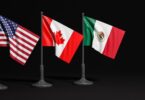The following report is by Pam and Russ Martens from Wall Street On Parade:
On Tuesday, [March 28th], Martin Gruenberg, the Chair of the Federal Deposit Insurance Corporation (FDIC), the federal agency that serves as both a bank regulator and the overseer of the federal insurance program for U.S. bank deposits, testified before the Senate Banking Committee. The dangers of U.S. banks holding large amounts of uninsured deposits came up repeatedly in his testimony. For example, Gruenberg’s written testimony included these details about the ongoing banking crisis:
…on Friday, March 10, a number of institutions with large amounts of uninsured deposits reported that depositors had begun to withdraw their funds.
And this:
The FDIC estimates that the cost to the DIF [Deposit Insurance Fund] of resolving SVB [Silicon Valley Bank] to be $20 billion. The FDIC estimates the cost of resolving Signature Bank to be $2.5 billion. Of the estimated loss amounts, approximately 88 percent, or $18 billion, is attributable to the cost of covering uninsured deposits at SVB…
Silicon Valley Bank and Signature Bank represented the second and third largest bank failures, respectively, in U.S. history. (The largest was Washington Mutual, which failed during the 2008 financial crisis.) But in terms of the size of their deposits, we are talking about minnows compared to the deposit exposure at the whale banks on Wall Street.
As of December 31, 2022, Silicon Valley Bank had $175 billion in deposits. On the same date, Signature Bank held $88.6 billion in deposits. Now compare that to the whales on Wall Street: As of December 31, 2022, this is where deposits stood at the four largest banks in the U.S. – all of which also have large risk exposure from their extensive trading operations on Wall Street: (The data comes from federal regulatory filings known as “call reports.”)
JPMorgan Chase Bank N.A. held $2.015 trillion in deposits in domestic offices, of which $1.058 trillion were uninsured.
Bank of America held $1.9 trillion in deposits in domestic offices, of which $909.26 billion were uninsured.
Wells Fargo held $1.4 trillion in deposits in domestic offices, of which $721.1 billion were uninsured.
Citibank N.A. (parent, Citigroup) held $777 billion in deposits in domestic offices, of which $598.2 billion was uninsured. But…wait for it…Citibank also held a staggering $622.607 billion in deposits in foreign offices – of which, potentially, nothing was insured according to current law and rulemaking. That would bring total deposits at Citibank in both domestic and foreign offices to $1.4 trillion with potentially only $178.8 billion FDIC insured – or 13 percent. (We have sought clarification on this from the FDIC and will update this article when we receive a response.)
The Deposit Insurance Fund (DIF) protects depositors in U.S.-based federally-insured banks up to $250,000 per depositor, per bank. It is funded primarily through quarterly assessments on insured banks. Ultimately, “FDIC insurance is backed by the full faith and credit of the United States government.” No one has ever lost a dime in an FDIC-protected deposit in the U.S.
According to the FDIC, the Deposit Insurance Fund (DIF) held $128.2 billion as of December 31, 2022 while the total of domestic deposits tallied up to $17.7 trillion.
This would not be the first time that Citigroup’s Citibank has put a gun to the taxpayers’ head with the reckless way it does business. Sheila Bair was the Chair of the FDIC during the 2008 financial crisis. In her 2012 book, Bull by the Horns, Bair makes an astonishing revelation about Citigroup. Despite the trillions of dollars in revolving loans and capital infusions used to prop up Citigroup during the 2007 to 2010 financial crisis, its federally-insured commercial bank, Citibank, actually held only $125 billion in U.S. insured deposits according to Bair.
As it turns out, the bulk of Citibank’s deposits were foreign and a large part of those deposits were not insured or had low insurance amounts. Had this foreign money decided to run for the exits on fear of a Citigroup collapse, the FDIC might have been looking at just a $125 billion problem but the rest of the financial system was looking at $2 trillion on the books of Citigroup, $1 trillion off the books of Citigroup, and trillions of dollars of derivative counterparty agreements.
In her book, Bair shares her belief that Citigroup’s two main regulators, John Dugan (a former bank lobbyist, who in the leadup to the financial crisis in 2008 headed the Office of the Comptroller of the Currency, the regulator of national banks) and Tim Geithner, then President of the Federal Reserve Bank of New York, were not being forthright with the public on Citigroup’s real condition.
Geithner failed up to become U.S. Treasury Secretary under President Obama. Geithner is currently President of a Wall Street private equity firm, Warburg Pincus. John Dugan is currently Chairman of the Board of Directors of Citigroup. (You can’t make this stuff up.)
AUTHOR COMMENTARY
I will say it again for the umpteenth time, you need to keep your money out of the banks. You need to limit your exposure to them by keeping in just the bare minimums to keep the accounts open, pay bills, make online transactions, and run a business; and perhaps be diversified with multiple institutions in the event one of them goes bust, you won’t lose as much.
Moreover, I have warned that the problems that plagued SVB and the others are the same problems plaguing the rest of the banks, both big and small, because they are insolvent. They, up until very recently, had no loans, deposits, and no savings. The savings rate in the United States is in the toilet, and people were not adding much money to these banks, and banks became less likely to make more investments. Now with rates at 5% the banks cannot afford these bonds, treasuries, and securities.
Furthermore, the notion that the FDIC will insure depositors is a ruse. The FDIC only insures up to 1.7% of all deposits in the country. The FDIC does not have enough money to cover a fraction of deposits. If a major banks collapses and contagion spreads, leading to a bank run, you’re out of luck because the FDIC will not bailout the depositor of $250,000. And even if they were to, no one talks about how long it will take for depositors to see their money credited to them, which therefore makes depositors left holding the bag.
[4] Labour not to be rich: cease from thine own wisdom. [5] Wilt thou set thine eyes upon that which is not? for riches certainly make themselves wings; they fly away as an eagle toward heaven. Proverbs 23:4-5
In the end, these “too-big-to-fails” will get bailed-out by the federal government, and we all get to pay for it just like last time.
Treasurer Janet Yellen made it very clear not long ago that the bigs will be protected and smaller institutions will be allowed to get crushed.
[7] Who goeth a warfare any time at his own charges? who planteth a vineyard, and eateth not of the fruit thereof? or who feedeth a flock, and eateth not of the milk of the flock? [8] Say I these things as a man? or saith not the law the same also? [9] For it is written in the law of Moses, Thou shalt not muzzle the mouth of the ox that treadeth out the corn. Doth God take care for oxen? [10] Or saith he it altogether for our sakes? For our sakes, no doubt, this is written: that he that ploweth should plow in hope; and that he that thresheth in hope should be partaker of his hope. (1 Corinthians 9:7-10).
The WinePress needs your support! If God has laid it on your heart to want to contribute, please prayerfully consider donating to this ministry. If you cannot gift a monetary donation, then please donate your fervent prayers to keep this ministry going! Thank you and may God bless you.








Bank integration. Popery, Blackrock and good old MYSTERY, BABYLON THE GREAT.
“large Uninsured Deposits” – whatever that means – ALL insurance companies are OWNED by banks — so the insurance companies insure the banks who are owned by the banks if that makes sense – in other words a bankrupt man is giving you a guarantee that he will bail out the other bankrupt man if you give him your money!!! tell me people are not this stupid and i will show you people on mass who took a part in a world-wide experiment that will kill them soon and now they are offering their kids up for lab rates 5-11…many of them were Christians…
You just lost 99% of the American population with that no-brainer LOL. People are so fickle anymore.